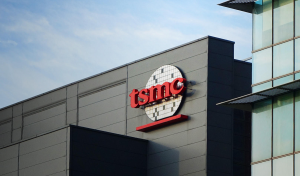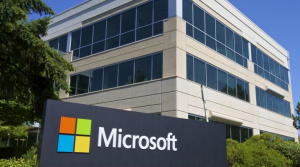Breaking Analysis: Microsoft, Not Fairfax, Should Buy BlackBerry
Today, it was announced that BlackBerry has reached an agreement to be purchased for $9 per share by a group led by Fairfax Equity Holdings. This deal values BlackBerry at $4.7 billion and should come as a surprise to no one, particularly given recent devastating financial news provided by the former smartphone king of the hill.
![]()
BYOD killed the messaging star
It’s a well-known fact that BlackBerry failed in coming to grips with the rise in the consumer smartphone market. As these devices improved, they were deemed “good enough” by many who didn’t want to have to carry two such devices and opted to keep the one that provided the most functionality. This was almost always the non-BlackBerry device. Further, although it really tried, BlackBerry simply failed when it came to creating compelling new devices for its users, including the ill-fated BlackBerry Playbook. Basically, as employees started buying their own devices rather than having them provided by their employers, BlackBerry lost.
In the hardware game, BlackBerry is done. But today’s world is becoming more software-centric every day.
New direction is needed
Although things look grim for the company, the fact is that it still has a lot going for it, but the company’s leadership needs to stop making the same mistakes over and over and come to grips with the fact that Apple and Android, and to a very, very small extent, Microsoft, have won the day when it comes to the overall smartphone market. BlackBerry still has a broad patent portfolio and underlying services that, to this day, remain unmatched in the industry. In fact, with the right direction, I believe that BlackBerry can survive, but not in the same market it dominated for years.
Thinking back to the days when having a BlackBerry was a symbol of status, organizations purchased these devices not for their “shininess”, but the services that they provided, which included secure messaging and complete control of what a user was and was not allowed to do with the device. BlackBerry devices and services were considered among the most secure in the market and even today, the US government still relies on the company as their top choice for smartphones.
In the end, it’s the services that matter. The device is simply the delivery mechanism.
Microsoft needs to buy BlackBerry
Windows Phone is a good operating system. It’s not great yet, but it’s getting better all the time. The biggest challenge for Microsoft with Windows Phone is to establish a sufficient user base that will result in developers considering it a first rate platform. The lack of ecosystem is holding back the operating system.
BlackBerry has assets that could give Microsoft a huge boost in the mobile game and which may indirectly benefit Windows Phone. BlackBerry’s messaging platform – BBM – is still considered among the most secure available. A Microsoft buy a BlackBerry would give the company BBM. Microsoft can scale this service using Azure and make it available to users of all device types – Windows Phone, iOS, and Android. In addition, Microsoft could add its own BBM offering to Office 365 as a premium option. For many companies, this would significantly address the BYOD issue. In fact, BlackBerry already has such a project underway, but it was, surprise, delayed.
BlackBerry also provides more comprehensive device control options than other providers. This is another area that Microsoft could leverage with both Office 365 and its own line of phones. BYOD is a huge challenge for many organizations due to device options, such as cameras and SD card slots and more. Imagine an Office 365 service that could lock down a device based on location or network connectivity. If a user is either in an office or connected to it via VPN, the external storage slots wouldn’t work, nor would apps such as DropBox. Obviously, there would be a lot of engineering effort involved, but the basic foundation is already there. Again, this could be an extension to Office 365 and provided as a premium service. Also, any of these could be built into Exchange on premises.
Finally, there is the patent portfolio. Some estimates indicate that the patent portfolio alone is worth well above $2 billion. What the market doesn’t need is a company to simply buy the patent portfolio and then start suing everyone in the market. The market does need a company that can reasonably leverage the full range of assets.
To that end, Microsoft now has a hardware arm courtesy of its Nokia buy. They have an operating system. They have cloud-based services serving government and enterprise. They now need to buy BlackBerry, jettison BlackBerry’s consumer efforts, and focus the purchase on improving Microsoft’s own enterprise efforts. In the right hands and with leadership willing to adapt, BlackBerry could be a formidable force in the market, but the status quo is no longer a viable option.
A message from John Furrier, co-founder of SiliconANGLE:
Your vote of support is important to us and it helps us keep the content FREE.
One click below supports our mission to provide free, deep, and relevant content.
Join our community on YouTube
Join the community that includes more than 15,000 #CubeAlumni experts, including Amazon.com CEO Andy Jassy, Dell Technologies founder and CEO Michael Dell, Intel CEO Pat Gelsinger, and many more luminaries and experts.
THANK YOU













